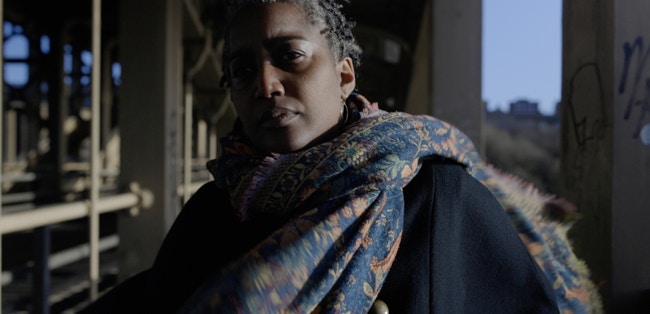When We Speak of Our Mothers
dwelling in this space we breathe
the camera holds dual truths
—Kadija Saye
Sophia grew tired of being powerless.
Knew that she was attempting the impossible.
Knew that each ‘X’ in a box was a butterfly.
Knew that her mark could cause chaos.
When we speak
We forget
Item for study: Joy as scientist.
A presentation in monochrome,
an experiment more black than white.
Item for study: Joy as cover girl
assuming the poses of glossy magazines
but it’s 1989 and black girls don’t sell.
In front of the camera Joy shifts our gaze,
the details she reveals/conceals
make her knowable/unknowable.
When we speak
We forget
Olive preached resistance,
Lived resistance.
Olive sang for the sisters
who could not speak.
Olive knew her own strength
but not the limit of her years.
You can’t archive activism
like a relic. It is alive, wild.
Hold her in collective memory
when the fight is over.
We are still fighting.
We are still singing.
When we speak
We forget
We escape our mothers’ bodies,
become trapped in our own.
Gain and lose control.
Jo’s body had a mind of its own.
We glimpsed a distorted view
of where it was leading her.
In semi-nudity she grew
comfortable with herself, made
peace with her unfaithful body.
Photographs halt illness,
repair what modern medicine
fails to heal.
Trapped in our own bodies,
we gain and lose control,
gain and lose.
When we speak of our mothers,
we forget they were girls once.
Explanation
“When We Speak of Our Mothers” was written in response to objects in the British Library’s Unfinished Business exhibition. The poem’s epigraph combines the title of Khadija Saye’s series of tintypes, Dwelling: in this space we breathe, with a quote about the medium she worked in.
This poem celebrates:
Khadija Saye (1992–2017), artist and photographer
Sophia Duleep Singh (1876–1948), suffragette
Joy Gregory (b. 1959), artist and photographer
Olive Morris (1952–1979), political activist and community leader
Jo Spence (1934–1992), artist and photographer
When I encountered these women in the Unfinished Business exhibition, they each spoke to my experiences in some way; each sparked a moment of recognition.
Like so many people in the UK and around the world, I watched in horror as Grenfell Tower burned. 72 people were killed. Twenty-four-year-old artist Khadija Saye died in the fire, but her work lives on in the art she created.
I have always voted. My eighteenth birthday coincided with a general election, and, although the result didn’t go my way, I am grateful for women like Sophia Duleep Singh who fought for women’s suffrage.
Joy Gregory’s work reminded me of the glossy magazines I used to devour as a teen, along with their subtle message that I was not, could not, be beautiful.
Olive Morris was born in Jamaica the year after my mother and made the same childhood trip to the Mother Country. Morris was badly beaten in police custody when she was just 17, an experience that led her to dedicate the rest of her short life to fighting against racism and gender inequality.
Jo Spence lived with cancer until it killed her, just as my mother-in-law Marian Williams did until her death from leukemia in 2019. As I immersed myself in the Unfinished Business exhibition looking for connections and inspiration, my mother-in-law (the memory of her) was always present.
Credits
Directed by Matthew Thompson.
Poem commissioned by Poet in the City in partnership with the British Library & Newcastle Libraries as part of Collections in Verse.
